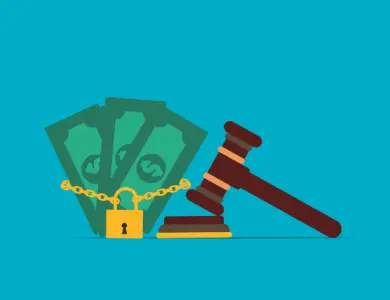How to build Good Credit Fast

Cracking the Credit Code: Strategies to Build Good Credit Fast
How to build good credit fast, In our current financial climate an excellent credit score is crucial to get loans, renting apartments and even securing certain jobs. However, establishing a good credit score is a complicated and lengthy process, particularly when you’re just starting out or have a shaky credit experience. This comprehensive guide is designed to provide you with strategies to help you build credit quickly and to achieve financial independence.
Understanding the Credit Score System:
Credit scores are a 3-digit number that ranges from 300 to 850 that reflects your creditworthiness and financial accountability. The lenders use credit scores to determine the risk you take as a borrower and to determine the loan rate conditions, terms, and the eligibility.
Understanding the Factors Influencing Your Credit Score:
- History of payments (35 percent): This factor is the biggest portion the credit score. It is a reflection of your consistent and punctual payments to all your credit cards.
- The ratio of your credit usage (30 percent): This ratio shows how much credit you’re utilizing compared to your credit limit. A lower ratio of utilization is a good sign.
- Credit history length (15 percent): A longer credit history shows your expertise of managing your credit in a responsible manner.
- Recent credit inquires (10 percent): Applying for multiple credit accounts in the same timeframe could negatively affect your credit score.
- credit mix (10 10 percent): Having a mixture of credit accounts, like installment loans and credit cards could improve the credit rating of your.
Strategies for Building Good Credit Fast:
1. Make On-Time Payments:
The primary element in establishing credit is to make timely payments for all charges, including credit cards and loans, rent and utility bills. Make sure to set automated payments to make sure you don’t miss deadlines.
2. Pay Down Existing Debt:
A high ratio of debt to income negatively affects the credit rating. Prioritize paying down your existing debts, focusing on high-interest debt first. Think about consolidating debt options to make the repayment process.
3. Create a credit history with secured credit cards:
If you’re in a position where you’ve got little or no credit history you might want to consider obtaining the secure credit card. This type of credit card requires a security investment that acts as a credit limit. Be responsible with your use of the card and make your payments on time to build a good credit score.
4. Become an Authorized User:
Another option to get credit without owning a card is to be an authorized user of another credit card that has an excellent credit score. You must ensure that the cardholder is dependable and pay their bills promptly.
5. Dispute Credit Report Errors:
Check your credit report on a regular basis and correct any errors or incorrect information. This will significantly improve your credit score if it is rectified.
6. Utilize Credit Monitoring Tools:
Utilize the free tools for monitoring your credit offered by credit bureaus and financial institutions. These tools give you timely notifications about any changes to your credit score, and aid you in identifying areas that require improvement.
7. Maintain a Low Credit Utilization Ratio:
Make sure to keep your credit utilization under 30 percent. This means that you only use just a amount of your credit limit. Making sure you pay down your balances on a regular basis and expanding your credit limit could aid in this.
8. Seek Professional Guidance:
If you require individualized assistance you should consider speaking with a credit counsellor and financial planner. They can help you create an individualized plan to boost your credit score and reach those financial targets.
Additional Tips:
- Beware of applying to multiple credit card concurrently.
- Keep good relations with your loan providers.
- Think about co-signing an mortgage with an accountable person.
- Do not close credit accounts with excellent standing.
Conclusion:
It takes time and effort however it’s a doable goal if you follow the right strategies and perseverance. When you implement these strategies and staying determined to manage your credit responsibly and a positive attitude towards credit, you will be able to open the possibilities of financial success and secure a long-term financial future. Be aware that good credit is a vital asset that will open doors towards a brighter financial future. If you focus on responsible use of credit and actively managing your finances, and seeking help in times of need, you can establish a solid credit score and reach the financial objectives you have set.
Advanced Strategies for Accelerating Credit Score Growth:
Although the strategies mentioned above provide the foundation needed to build good credit, those who want to accelerate their progress may apply additional techniques that are more advanced:
1. Utilize Credit Building Loans:
These loans are specifically designed to assist people who have a poor credit history build good payment records. The borrower makes regular payments over the loan period, and will be reported to credit agencies and positively affects the credit score.
2. Leverage Rent Reporting Services:
Services such as RentTrack as well as Rental Kharma let tenants submit their timely rent payments in advance to the credit reporting agencies, possibly increasing your credit rating. This is particularly helpful for those whose credit score is mostly comprised of credit that is revolving, such as credit cards.
3. Consider Credit Card Balance Transfers:
Transferring the balances of high-interest credit cards to low-interest credit cards could let you utilize credit more efficiently and increase the credit rating of your. But, make sure that the rate of interest on your new card is significantly lower than old cards in order to avoid more debt.
4. Talk to Credit Card Companies:
If you’ve got a track record of paying on time with a particular credit card company, think about working with them to reduce the interest rate on your account or increase the credit limit. This could positively impact the ratio of your credit utilization and possibly boost credit scores.
5. Leverage Experian Boost:
Experian Boost lets users connect their bank accounts to the Experian credit profile, which allows timely payments for utilities telephone bills, streaming providers to be incorporated into the rating. This is a useful option for those with a limited credit histories or who are dependent on credit cards from other sources.
6. Utilize Credit Gardening:
This strategy involves carefully managing your credit cards with the oldest ones to maximize the positive impact they have in your credit rating. This could include using your credit card with the oldest balance and keeping it open with a small balance and avoiding closing your accounts in the event of a need to close them.
7. Stay Updated on Credit Reporting Regulations:
The Fair Credit Reporting Act (FCRA) and its regulations also provide consumers with rights relating to their credit reports as well as disputes. Be aware of these regulations to ensure you’re active in promoting the most accurate and fair practices in reporting.
8. Implement Budgeting and Financial Management Tools:
Using budgeting applications and financial management software and other online resources can help you keep track of your expenditure. Develop and keep a budget, and pinpoint areas of improvements in your financial health. A proactive method of managing your finances could indirectly aid in building credit quality. By encouraging responsible use of credit and preventing the possibility of missing payments.
Conclusion:
The process of building credit is a combination of dedication to an approach to credit that is strategic. Utilizing the latest methods, being aware of requirements for credit reporting and consistently implementing a prudent financial management. You’ll be able to improve your credit score and gain access to a greater variety of financial opportunities. Be aware that the credit score you have is an indication of your financial background and your responsibility. By focusing on your finances and applying these strategies. You will establish a solid credit foundation and meet the financial objectives you have set.


